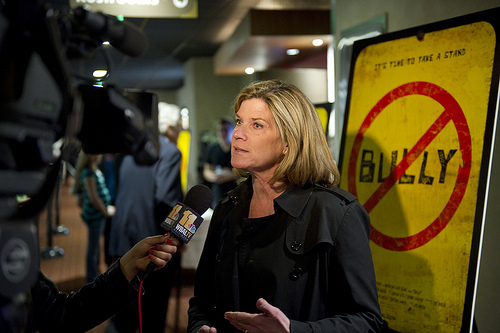In May 2013, Maryland lawmakers passed a cyberbullying law, making it a misdemeanor to use a computer to “inflict serious emotional distress on a minor.”
Although the Maryland American Civil Liberties Union’s policy director told the Baltimore Sun “portions of this bill are unconstitutional” because the bill too broadly restricts free speech, the ACLU currently has no plans to file a lawsuit.
Violators face up to one year in jail or a $500 fine. Eighteen states have cyberbullying laws, and one similar to Maryland’s is under consideration in Congress. Federal statistics, however, show bullying has been declining for two decades.
Facebooking Bullies
Now the Maryland attorney general has partnered with Facebook to let school officials flag for removal online posts they deem harmful. All Maryland schools must now assign an employee to alert Facebook of what they consider questionable material.
“The pilot project is designed to allow for a more direct line of communication between schools and Facebook when potential cyberbullying occurrences may not be resolved through Facebook’s normal reporting process or require more immediate attention,” said Alan Brody, a spokesman for Maryland’s attorney general.
He was quick to note school officials can’t tell Facebook what to censor but can only advise them of material they find offensive.
‘Sufficient Remedies’ Already in Place
“Existing laws against harassment already provide significant remedies against bad behavior, whether online or off,” said Walter Olson, a Cato Institute senior fellow in legal affairs. “Controversies like these may lead more people to question the premises that (1) online behavior is somehow so dangerous in itself that it needs extra-stringent rules that we would not apply to in-person or in-real-life social interactions and (2) that the government—and schools in particular—should intervene in proactive ways in the conversations students get into outside school hours.”
Many anti-bullying laws make schools responsible for students’ behavior off school property and after school hours.
Courts have typically ruled against laws criminalizing behavior that inflicts “emotional distress” on others, ruling such laws too broadly restrict free speech.
As a private entity, Facebook may legally delete any posts its administrators wish, and it already has policies that allow people to complain about certain posts or behavior on the site. If the pilot goes well in Maryland, Facebook may expand it nationwide.
Image by MarylandGovPics.




